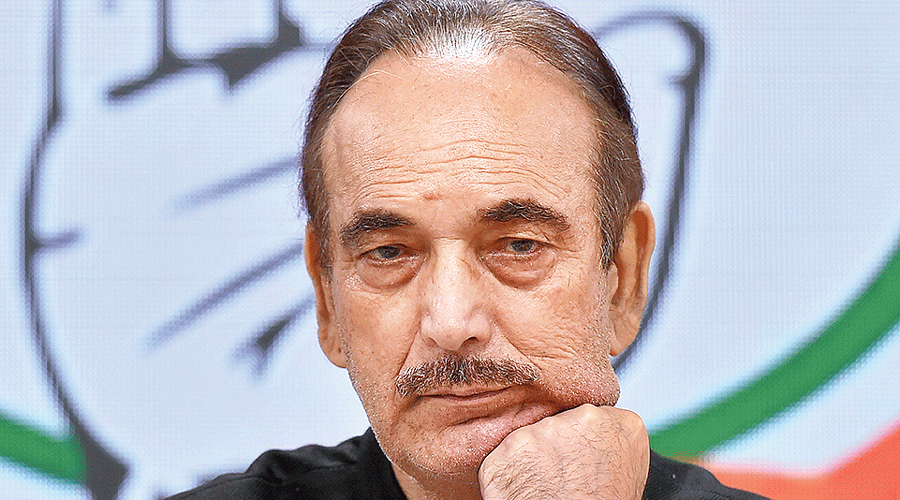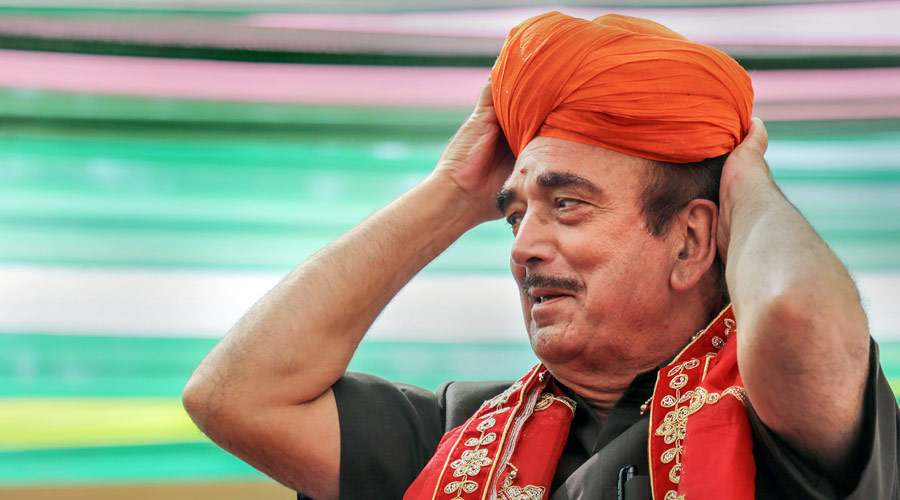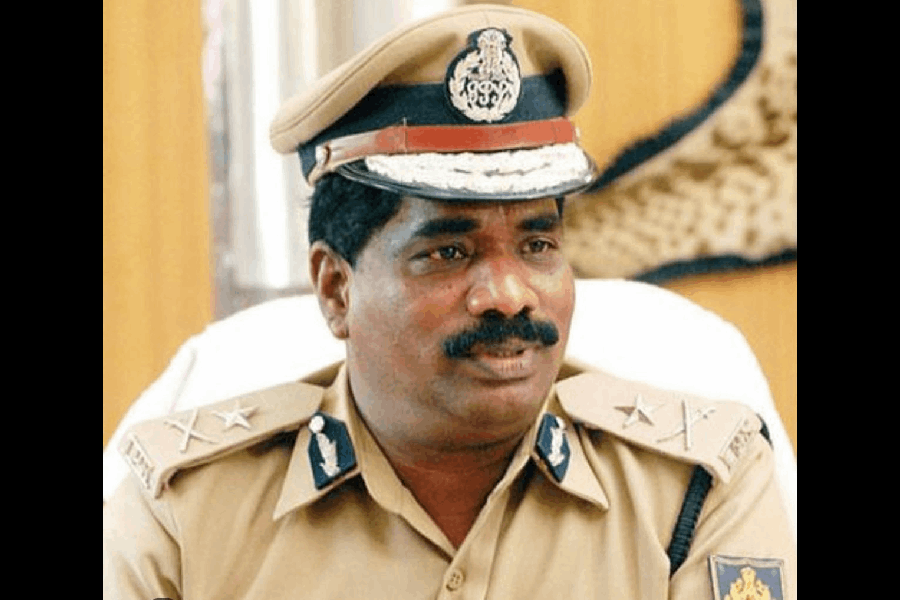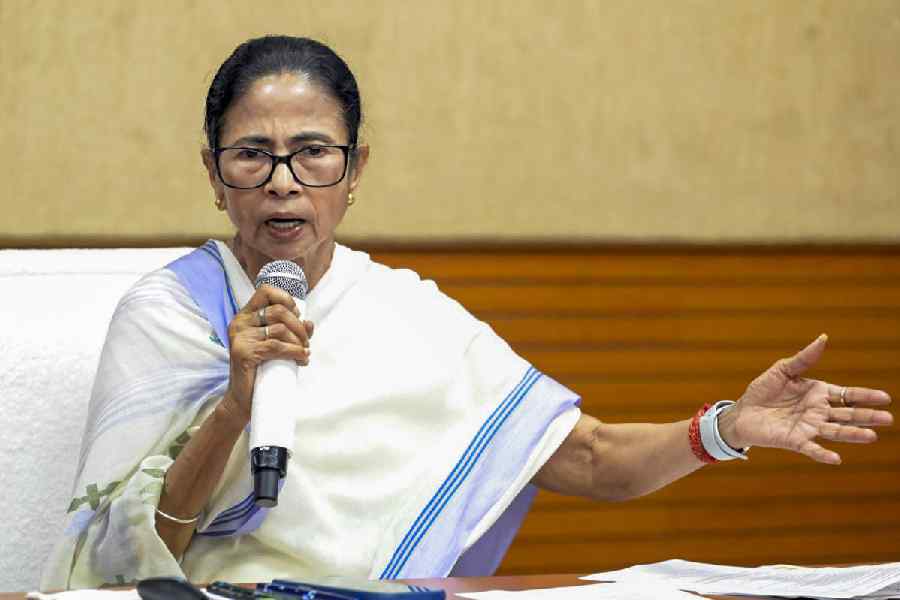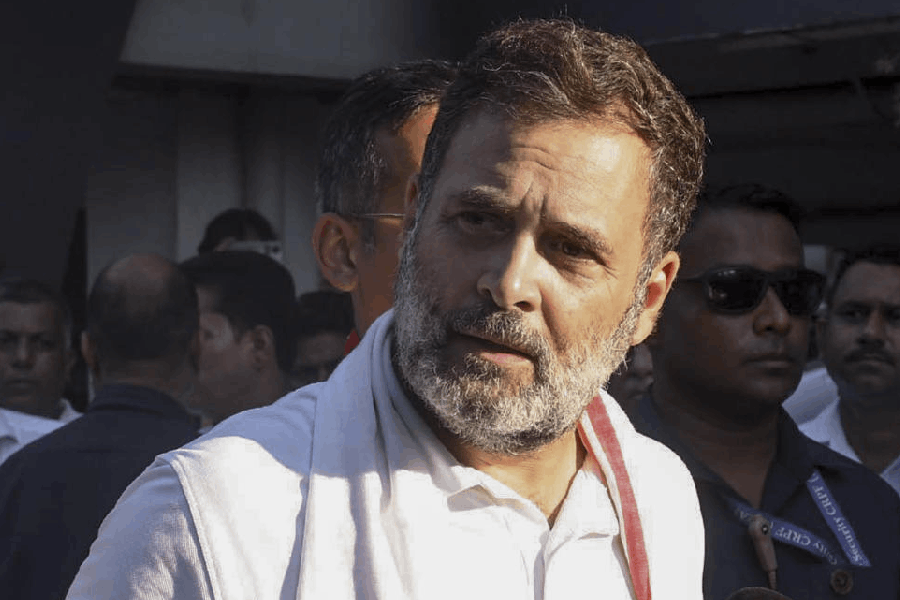Ghulam Nabi Azad’s resignation has barely evoked any support or sympathy within the Congress but the party has hit back ferociously at his degrading accusations, questioning his own credentials to resent the absence of internal democracy.
Responding to Azad’s acerbic barb that Rahul Gandhi’s “guards and PAs” took decisions, another party veteran, Digvijaya Singh, asked: “Which security guard and PA made you the leader of Opposition in the Rajya Sabha?”
Digvijaya — a two-term chief minister and a much bigger mass leader than Azad — always felt Rahul’s choice of a rootless leader for the post of leader of Opposition was wrong but never questioned the high command’s decision.
A Rajya Sabha member unwilling to be identified told The Telegraph: “We always felt restrained as Azad didn’t prefer a head-on confrontation with the Narendra Modi government on several issues. Choosing a leader from a politically more important state would have been wiser. We had the likes of Digvijaya Singh and P. Chidambaram, but Sonia Gandhi trusted Azad. Rahul was unhappy with his performance in Modi’s first term but didn’t disturb him. Which guard or PA prevailed over Sonia and Rahul to persist with him?”
Rahul is often attacked for his apolitical team, but denying Azad a Rajya Sabha re-nomination and picking Mallikarjun Kharge — rather than deputy leader Anand Sharma — to replace him as leader of the Opposition were well-considered political decisions.
The Congress has seen countless ordinary workers rise to the top but Azad has now questioned the power of democracy by contemptuously referring to “guards and PAs”.
The late C.K. Jaffer Sharief is a classic example: he won eight Lok Sabha elections and became railway minister after starting as a driver in the Karnataka Congress office.
R.K. Dhawan, who was Indira Gandhi’s PA (personal assistant), became one of the most powerful persons in the government and later a general secretary of the party.
Azad’s claim of the party being run by a coterie of sycophants is nothing new; it is almost a popular Congress folklore.
Rajasthan chief minister Ashok Gehlot responded to the charge by saying: “Azad was also called a ‘chaploos’ (sycophant) of Sanjay Gandhi. There were many young leaders recruited by Sanjay Gandhi at that time who were seen as a coterie. Sanjay’s activities were not liked by many; they saw him as an extra-constitutional authority. But the same team grew to control the party and governments for around 40 years.”
Gehlot added: “Nobody would have known who Azad was had Sanjay paid heed to the sycophancy charge and thrown all of them out. Azad now expects Rahul to throw out those being seen as sycophants. Just look at the dilemmas of the leadership. How many can they choose among lakhs of party workers? How many get an opportunity? Azad got the maximum opportunities. He was given plum posts for 42 years. I am stunned by his attack; I don’t have words to describe his letter (of resignation).”
Azad indeed was one of the luckiest, having been blessed by all top leaders — Indira Gandhi, Rajiv Gandhi, P.V. Narasimha Rao, Sonia Gandhi, Mannohan Singh and Rahul Gandhi. Apart from ministerial berths, he was given challenging tasks to revive the organisation during the Congress’s decline but the outcomes were far from satisfactory. In both the key states of Uttar Pradesh and Bihar, Azad failed miserably as general secretary.
He was still retained as a key functionary in the high command structure and the highest policy-making body, the Congress Working Committee. He had no problem being the beneficiary of the nomination method for almost three decades even as talented and dynamic leaders from important states didn’t get any elevation during those decades. Sonia tried her best to accommodate him even after he formed the G-23 cabal of dissenters two years ago.
Party workers, however, didn’t take a sympathetic view of Sonia’s patronage to a select few who continued to be the permanent faces of the high command for decades. Rahul was conscious of the need to enforce a makeover and present a new Congress but the resistance he faced was debilitating.
Finally after the 2019 parliamentary elections, Rahul resigned as party president, presuming this would effect a total purge but the entrenched forces saw this as an opportunity to consolidate their control.
This triggered a vicious tussle, generating bitterness between the younger and older generations. But the battle has now fizzled out with Azad’s resignation, Kapil Sibal’s exit and Bhupinder Singh Hooda’s compromise with the leadership.
The disintegration of the G-23 was demonstrated in the lack of support for Azad. One of the G-23 members, Sandeep Dikshit, wrote a strong letter to Azad on Friday, arguing that he commanded support as the author of the reformist letter to Sonia in 2020 (pointing to a purported drift in the party), not as the author of his resignation letter.
Anand Sharma, a key architect of the G-23 plan, was cautious in his response. He said Azad must have been deeply hurt to break his 50-year-old relationship and this could have been avoided.
Sharma insisted that the G-23 had raised questions with the sole intent of reviving the Congress. He stressed the need for unity and conversation to solve the issues.
Another G-23 member, Manish Tewari, refused to comment on the contents of Azad’s resignation letter but insisted that there was a crack between India and the Congress.
But Tewari also dragged the discourse to “guards and PAs” by referring to “chaprasis” (peons) who are giving sermons. He told the news agency ANI: “…Strange that people who don’t have the capacity to fight a ward poll were chaprasis of Congress leaders, when they give ‘gyan’ about the party, it’s laughable.”
Though he didn’t explain, party leaders felt he was referring to Pawan Khera, who has now become the head of the Congress’s media department. Khera was then Delhi chief minister Sheila Dikshit’s PA.

